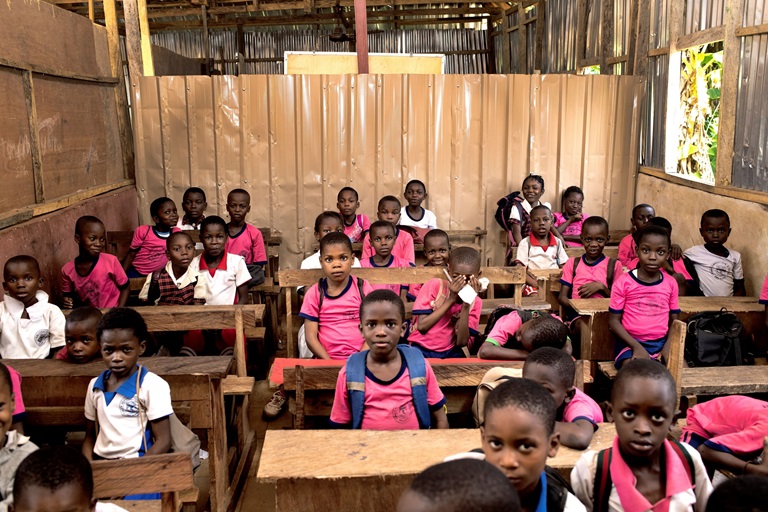Drawing on the lessons from tackling the HIV epidemic 20 years ago, South African society is now pulling together to address obesity. In South Africa today, more than half of the adult population – including more than two thirds of women – are living with overweight or obesity. Prevalence of obesity has increased dramatically over the last two decades and noncommunicable diseases (NCDs) are now responsible for more deaths and disability than HIV and AIDS or tuberculosis. Costs associated with overweight and obesity now account for 15% of government health spending.
Faced with a heavy burden of HIV in the early 2000s, health advocates and the medical community in South Africa famously fought the fight – and won – to reduce the stigma around HIV and AIDS and the government ensured access to antiretroviral treatment for all those in need. This is proving to be valuable experience for current efforts to reduce stigma around obesity and facilitate access to healthier environments and comprehensive health services, including new classes of medications to treat obesity.
An effective response to tackling obesity requires evidence-based multisectoral actions. This needs to include policies to create healthy environments and address wider determinants of health, as well as ensuring that all people who need to can access the right health services for obesity care and treatment. To support countries to design and implement their obesity response, WHO hosted a pre-launch webinar to announce a new Technical Package to Stop Obesityon 4 March for World Obesity Day 2025. Watch a full recording of the webinar here using passcode: uS8v^K#t.
The Government of South Africa is taking the obesity challenge seriously. As a frontrunner country of the WHO Acceleration Plan to Stop Obesity, South Africa has shown strong political commitment and leadership to create healthier environments and has been a champion country leading the way on health system reforms. “While obesity prevention efforts must continue, obesity care and treatment are also critical. Not only must obesity prevention, treatment and health-care services be brought up to scale, they also need to be provided where people can access them, at primary care and community level,” explained Dr Jeanette Hunter, Deputy Director General Primary Care at the National Department of Health.

© WHO / NOOR / Benedicte Kurzen
The country has already taken some bold moves to transform the food system, enable equitable access to healthy food and physical activity and provide healthy meals to children through the National School Nutrition Programme. Specifically, as part of efforts to create healthier food environments, a sugar-sweetened beverage tax, introduced in 2018, has helped reduce sugary drink purchases, and regulations to reduce salt in processed foods has reduced salt intake.
Obesity chronic care programs now need to be scaled up across all levels of the health system with a focus on community and primary care and referral and back referral to secondary and tertiary care. “The task is now to replan, reorganize and reorient health services and train health-care providers to expand access to all those in need and offer services where people are, with an impetus never seen before,” said Professor Francois Venter, Director of Ezintsha at the University of the Witwatersrand. “And there are many lessons from our experience in implementing large scale HIV programmes that are highly relevant,” he added.
As with the HIV response in the early 2000s, the voices of health advocates and researchers are critical to ensuring a person-centred, rights-based response to addressing obesity in South Africa. Robust civil society is a strength of South African society that can be leveraged to combat obesity. A key player, the Desmond Tutu Health Foundation (DTHF), expanded the HIV focus of its research and advocacy to cover HIV within the broader health context of NCDs and mental health in 2020. “Obesity is the new South African epidemic, with many parallels to HIV. Both require lifelong care and impact every part of society. The same levers that drove South Africa’s HIV response – advocacy, community engagement, collaboration and long-term commitment – are just as crucial for tackling obesity and sustained action beyond World Obesity Day," noted Dr Nomathemba Chandiwana, Chief Scientific Officer at DTHF.
On
the same line, the Cancer Association of South Africa (CANSA) has been running
educational campaigns on healthy living for decades. As well as educating the
public and enabling research, CANSA strives to influence policymakers on cancer
control issues and advocates to protect people’s right to health care.

© WHO / Barry Christianson
To
tackle obesity, action is needed across different areas of government
including, among others, health, social services, finance, education, trade and
urban planning. Government efforts can be amplified by collaboration with
researchers who can help with problem solving and filling knowledge gaps with
targeted research. At the same time, supportive non-governmental organizations
(NGOs) and community groups – joining forces with the government and scientists
– can call for robust, rights-based public health action.
By harnessing the superpower of joint government, civil society and academia action, and building on the hard-won success of HIV programmes, South Africa is leading the way and delivering the change that is needed to respond to the obesity challenge.
